The artist Zhongzhi (Harry) Huo is an educator and illustrator from Beijing, China. He thinks of his art as a way of speaking: the most important thing is not how pretty one's voice is but how compelling the content is. Zhuangzi is one of Zhongzhi’s favorite philosophers, and he grew up reading the stories Zhuangzi wrote. He admired Zhuangzi’s mode of expression, using the form of the story, through which any wisdom becomes easier to absorb.
“Nowadays, people's perceptions are fragmented, especially in Eastern and Western societies. People look at different information, disagree on the meaning of a word, and a piece of news can bring conflicting judgments. Without consensus, the world will be chaotic. So I hope to bring the wisdom of Zhuangzi to the world through this series of artworks. Using a more modern and universal language—art—to tell the story of Zhuangzi, language, and culture no longer become barriers. I hope that consensus will be built by bringing Eastern wisdom to the world and that all humankind will collaborate to create a better future.”
———————————————————————————————

THREE IN THE MORNING AND FOUR IN THE EVENING 朝三暮四, 2020, color pencil, graphite, ink, and collage on paper
“A man raised monkeys for a living. One time, when he was feeding the monkeys, he said to them: “I will feed you three acorns in the morning and four in the evening.” The monkeys were furious. Then he said: “I will feed you four acorns in the morning and three in the evening.” The monkeys are now happy.”

A DIALOGUE BETWEEN THE RIVER AND THE SEA 望洋兴叹, 2020, color pencil, graphite, ink, and collage on paper
“A self-righteous river meets the sea and realizes its limitations. The sea tells him that you cannot tell a frog living in a well the size of the sea because it is limited by its environment; you cannot tell a summer bug about ice in winter because it is limited by time. Now, since you see me, we can start talking about the Tao— patterns of this world.”

THE DEXTEROUS BUTCHER 庖丁解牛, 2020, color pencil, graphite, ink, and collage on paper
“Once upon a time, a dexterous butcher was a master at butchering oxen. People were curious about how he reached such height. He said: ‘When I started cutting up oxen, I could only see the whole ox. After three years, I no longer saw the ox. Now, I stopped using my eyes and started using my spirit to feel. Following the natural structure of the oxen’s body, guiding my knife through the gaps between muscles and bones, the ox will be cut effortlessly. I’ve had my knife for nineteen years without sharpening and have cut thousands of oxen, yet the blade is as good as new.’”

STUPEFIED AS A WOODEN CHICKEN 呆若木鸡, 2020, color pencil, graphite, ink, and collage on paper
“An emperor loved cockfighting, so he asked a trainer to train the strongest chicken. The emperor constantly checked to see if the chicken was ready. The first time, he asked the trainer: “Is he ready?” The trainer answered: “No, his eyes are fierce.” A few days later, the emperor came again and asked: “Is he ready?” “No, he still wants to fight.” said the trainer. After a few more days, the emperor came and saw that the chicken was standing like a wooden chicken; there was only numbness in his eyes. “Now he is ready.” said the trainer. At cockfighting, all the other chickens ran away in fear when they saw him. As a result, the chicken triumphed in every cockfight.”

TWO NATIONS ON A SNAIL'S ANTENNAE 蜗角之争, 2020, color pencil, graphite, ink, and collage on paper
“In ancient times, an emperor wanted to invade another country for their land. All the ministers were against the idea, so one told the emperor a story. ‘Once there were two countries built on a snail’s antenna; they constantly fought over land, and countless people were killed.’ The emperor was confused; then the minister said: ‘Compared to all the land in the world, is there really any difference between our country and the countries on the snail’s antennae?’”

THE MANTIS STALKS THE CICADA, UNAWARE OF THE ORIOLE LURKING BEHIND 螳螂捕蝉,黄雀在后, 2020, mixed media on paper
“There was a cicada singing and drinking the morning dew, without realizing that there was a mantis behind, leaning toward him and trying to eat him. The mantis was so intent on catching the cicada that it did not realize there was an oriole at its side, leaning toward him and trying to eat him.”

MEDITATION 冥想, 2021, color pencil, graphite, ink, and collage on paper
“Inspired by Zhuangzi’s stories, this piece expresses my feelings when creating the Zhuangzi series. The process is much like meditation, with my mind shuttling through the various characters from the stories. Sometimes I become a mantis, and sometimes I become the sea. Ruminating on the philosophy of the stories, my brain shoots out images and ideas like fireworks.”
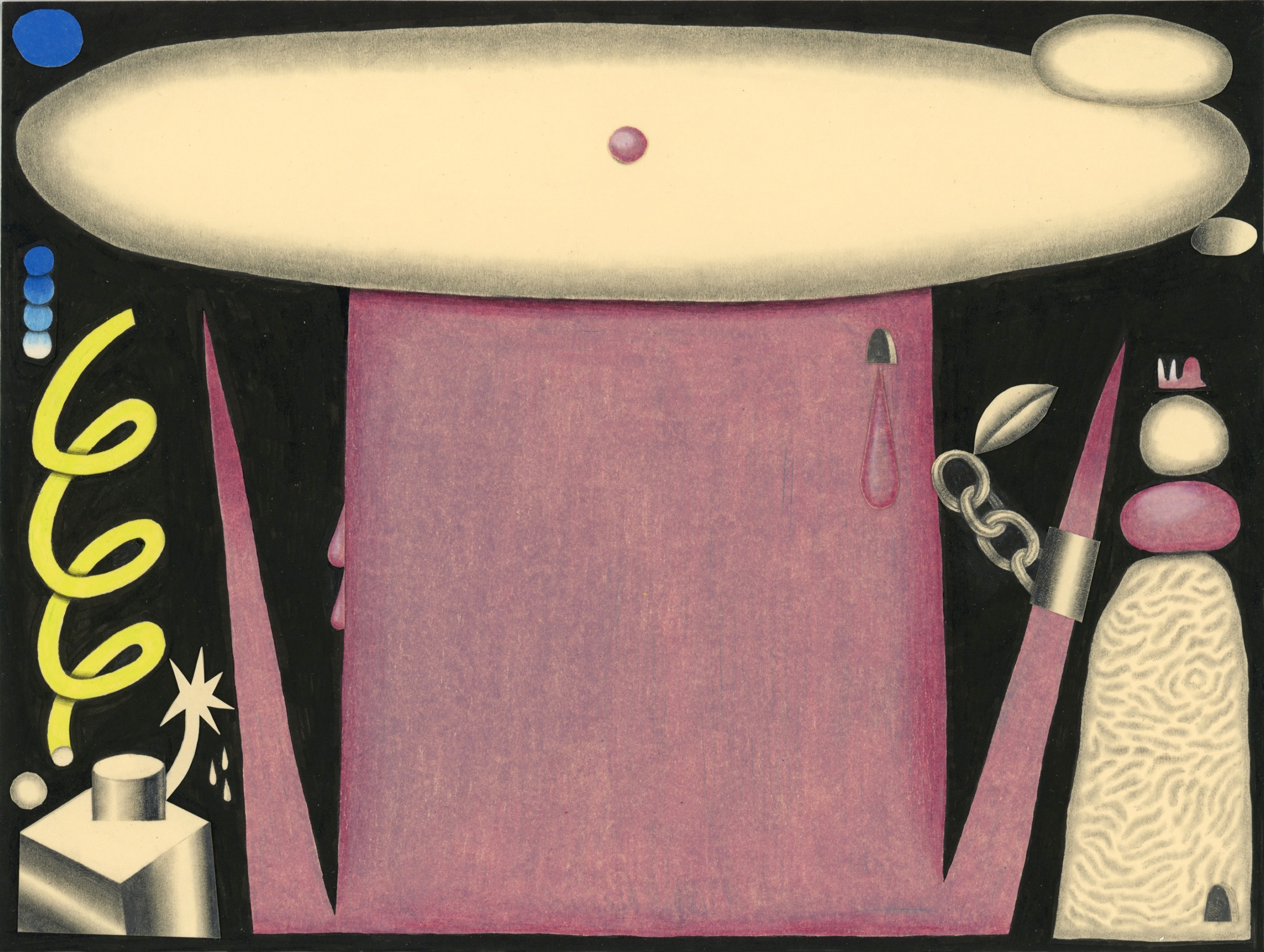
A JAILED FLOWER 囚花, 2020, color pencil, graphite, ink, and collage on paper
“Inspired by Zhuangzi’s stories, I started learning his way of expression. This is a story I wrote; it is about a snail warrior who tries to save his princess from the huge flower castle. Time and height are the warrior’s biggest enemies.”

THE SONG OF LIFE 生之歌, 2020, color pencil, graphite, ink, and collage on paper
“This is a story I wrote during the Covid-19 pandemic. It is more like a wish. People dance and sing in front of disasters and viruses. Singing becomes a barrier, and dancing becomes energy. Calming the anger of nature, we receive blessings from the sky, the earth, and the sea.”
———————————————————————————————
One of the challenges faced by today’s children is the excess of information on the Internet. In the flood of overloaded information, how can they not be distracted and avoid addiction, at the same time, how can they use the Internet wisely, turning the Internet into a tool has become a very important topic. This picture book absorbs the ancient Chinese philosophical story, A Sheep Lost in Branch Roads, and translates it using modern languages, so that the stories are no longer just stories, but can become wisdom that children can apply to their own lives.
———————————————————————————————
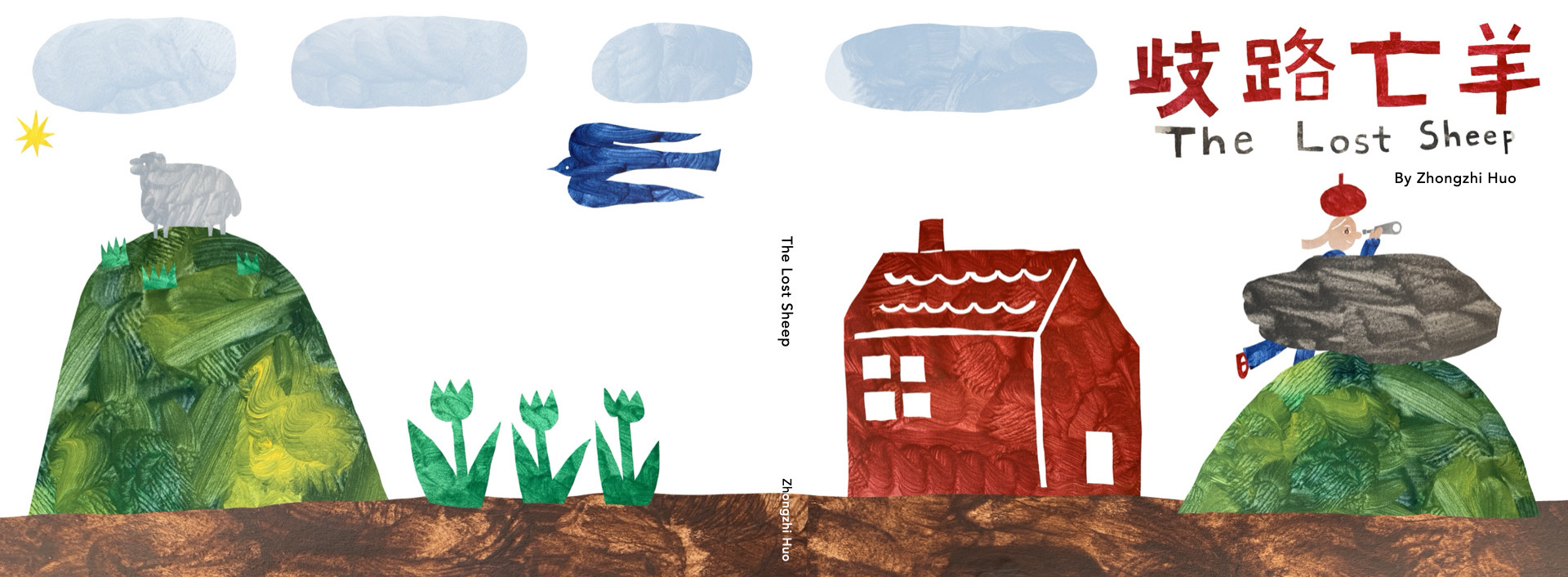
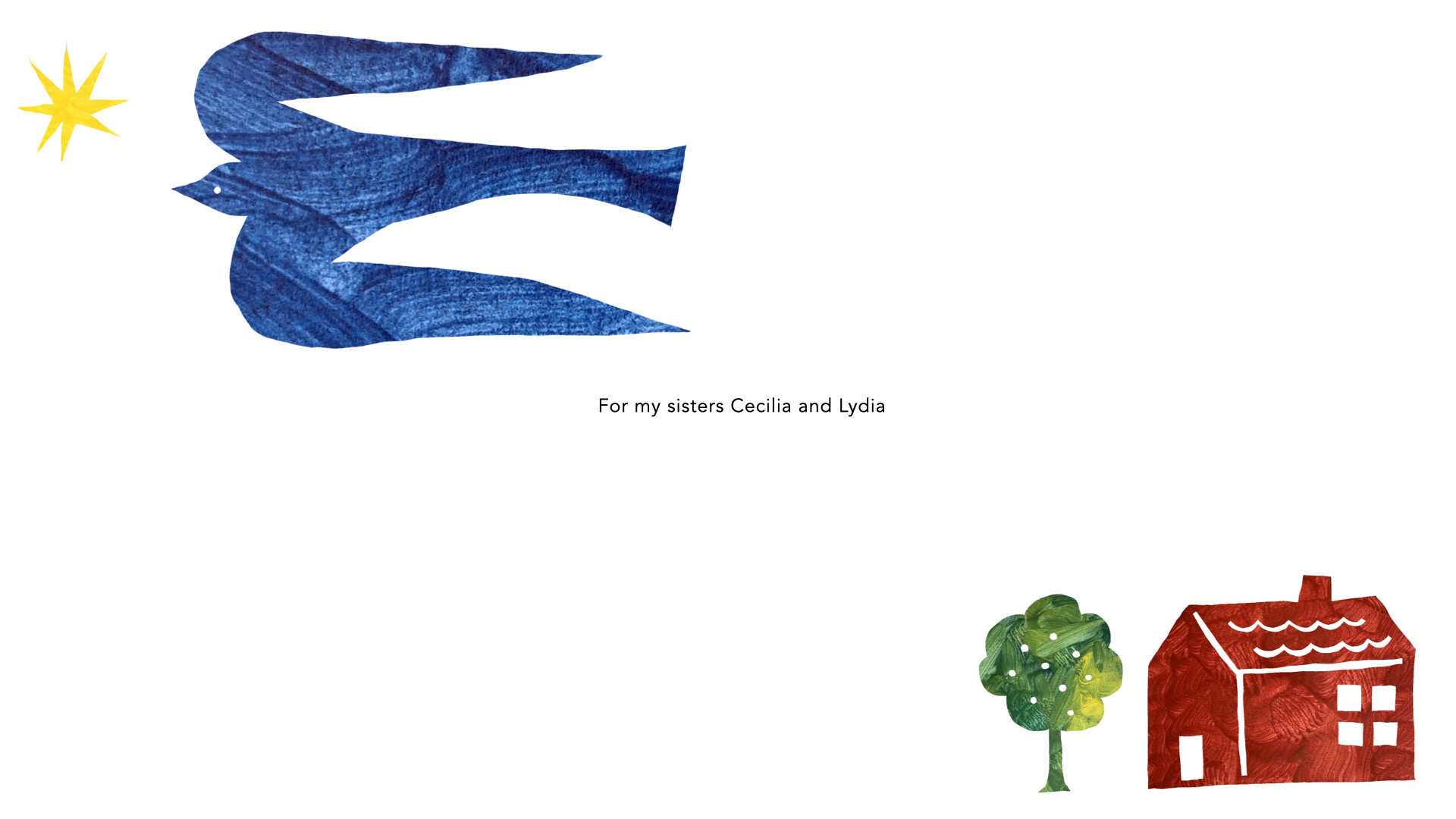
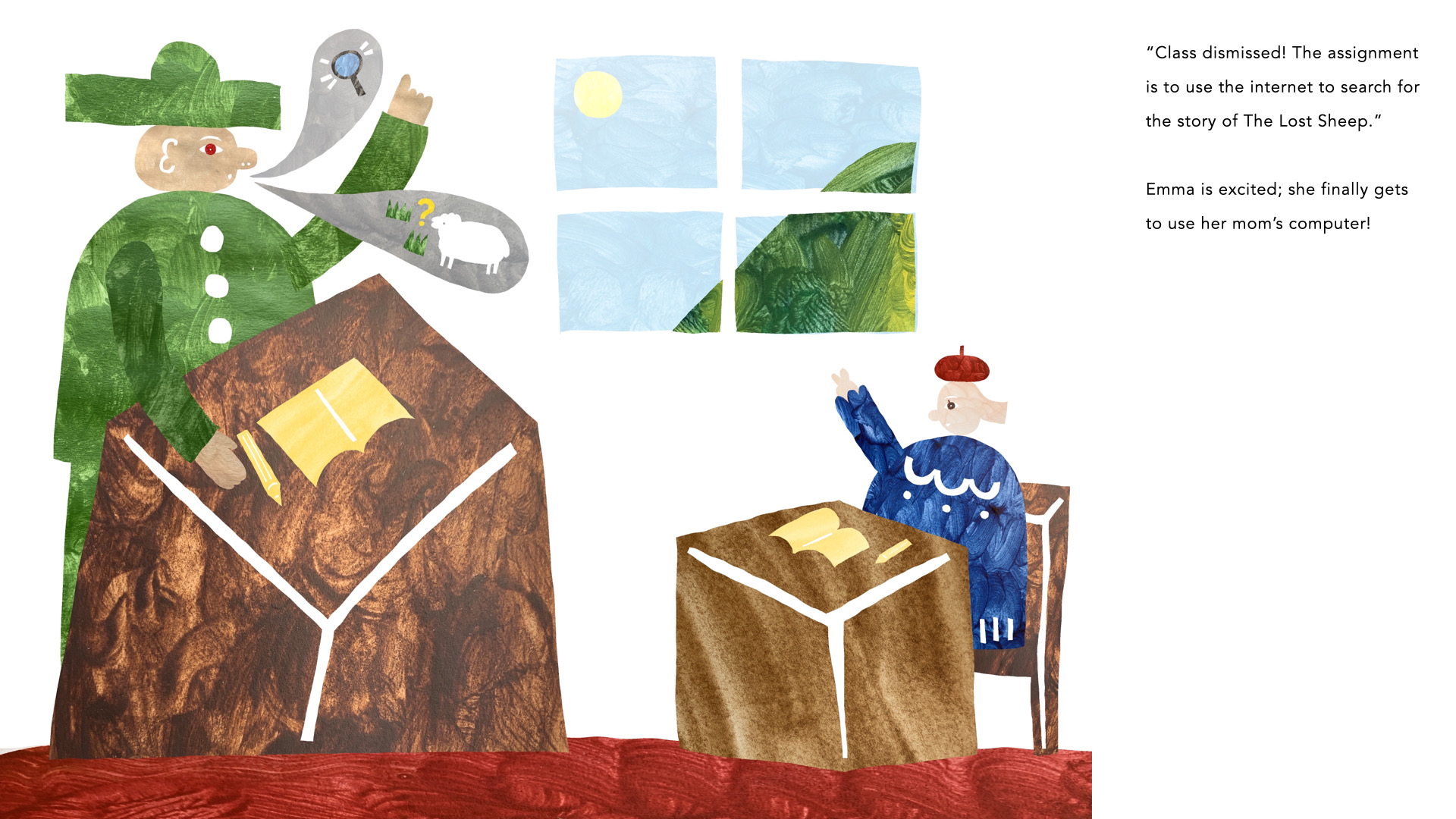
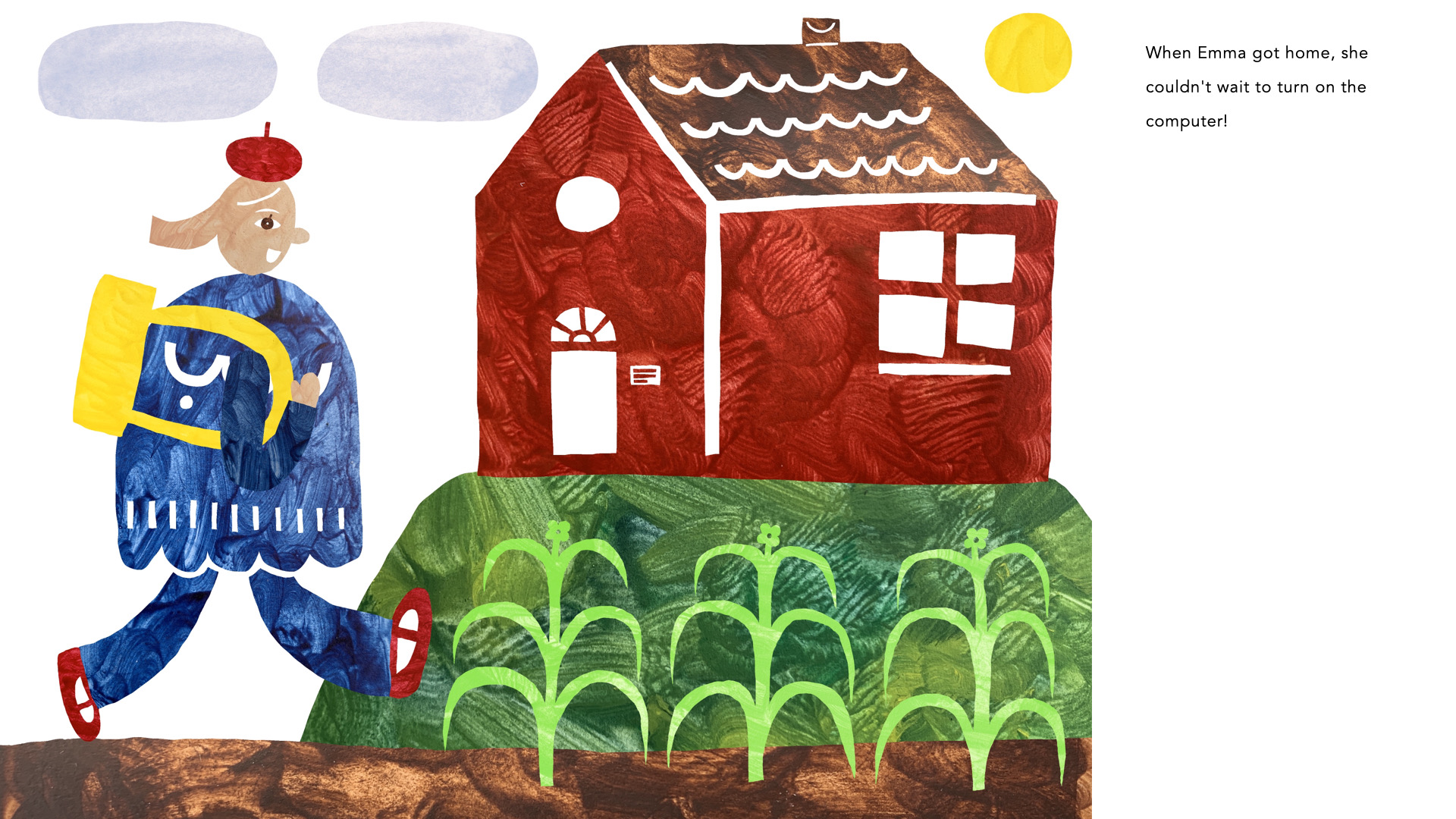
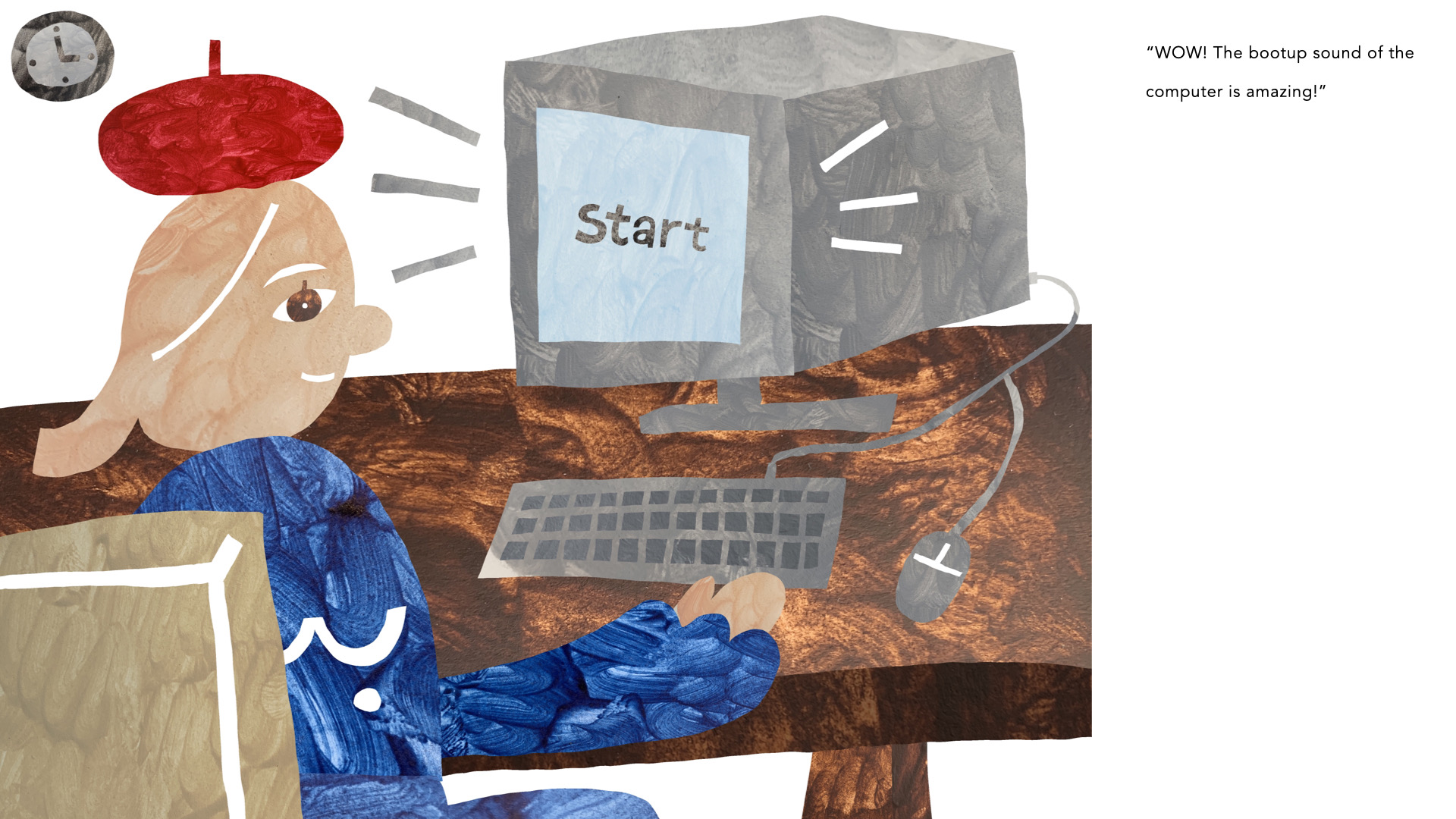
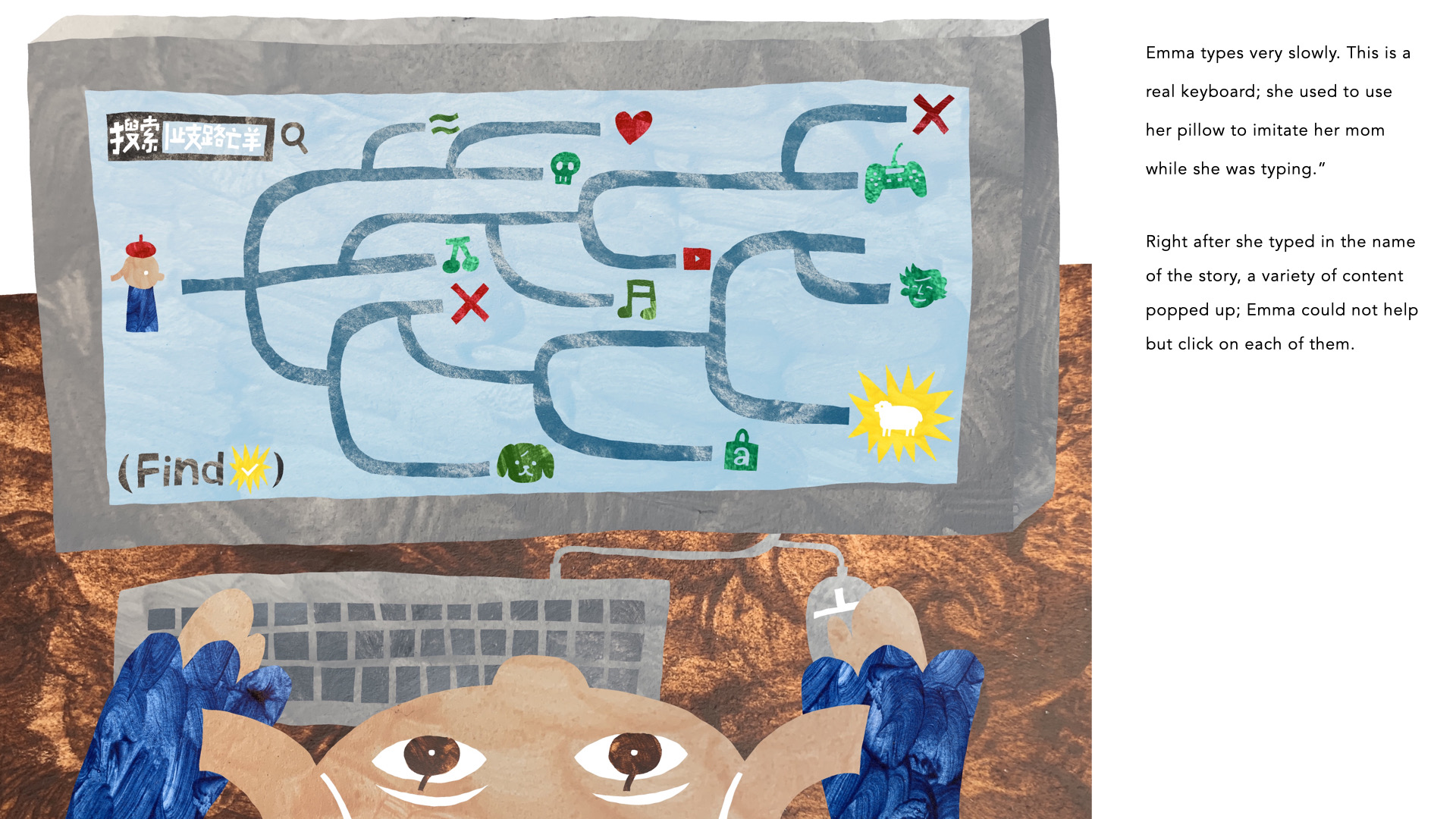
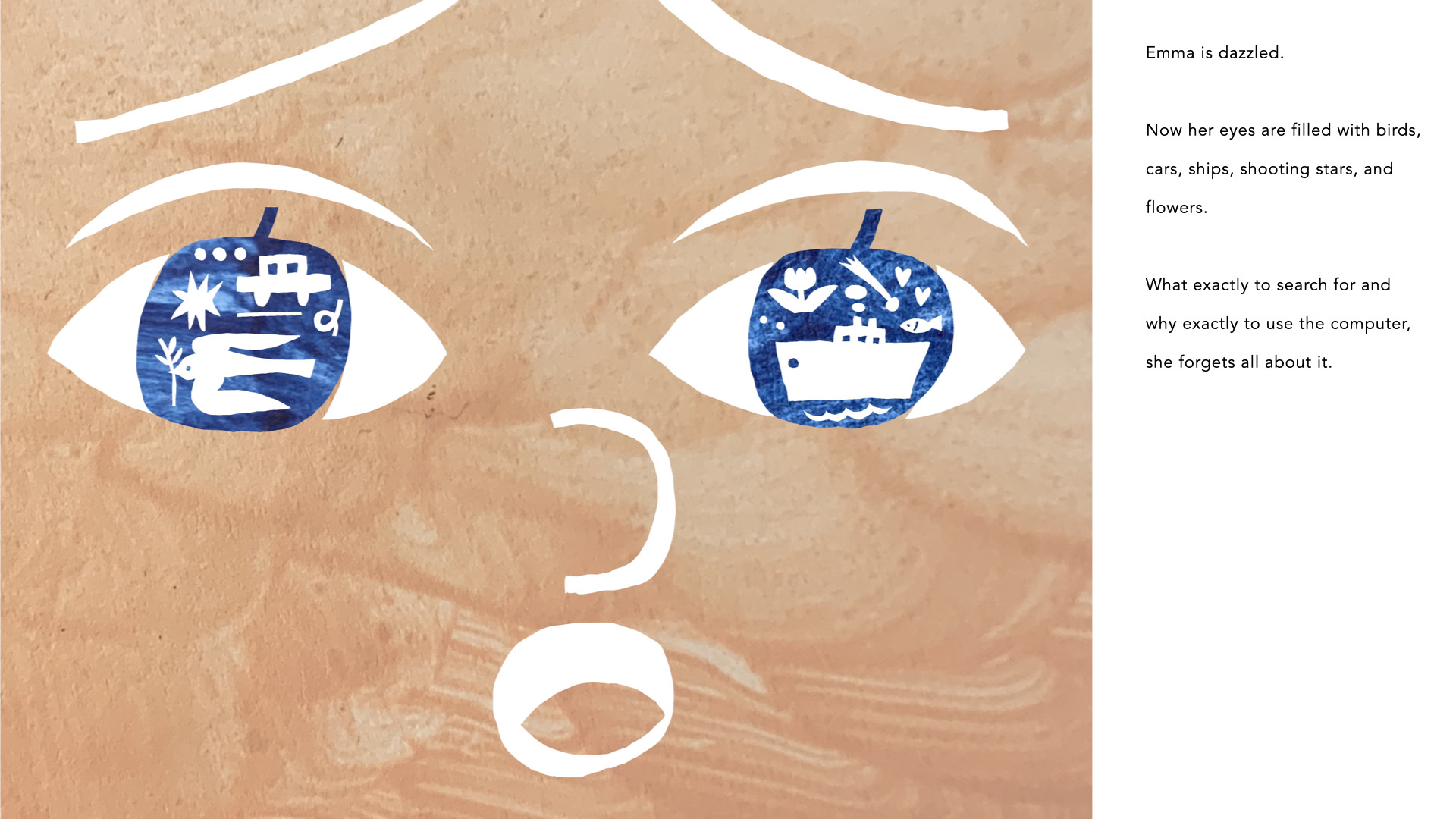
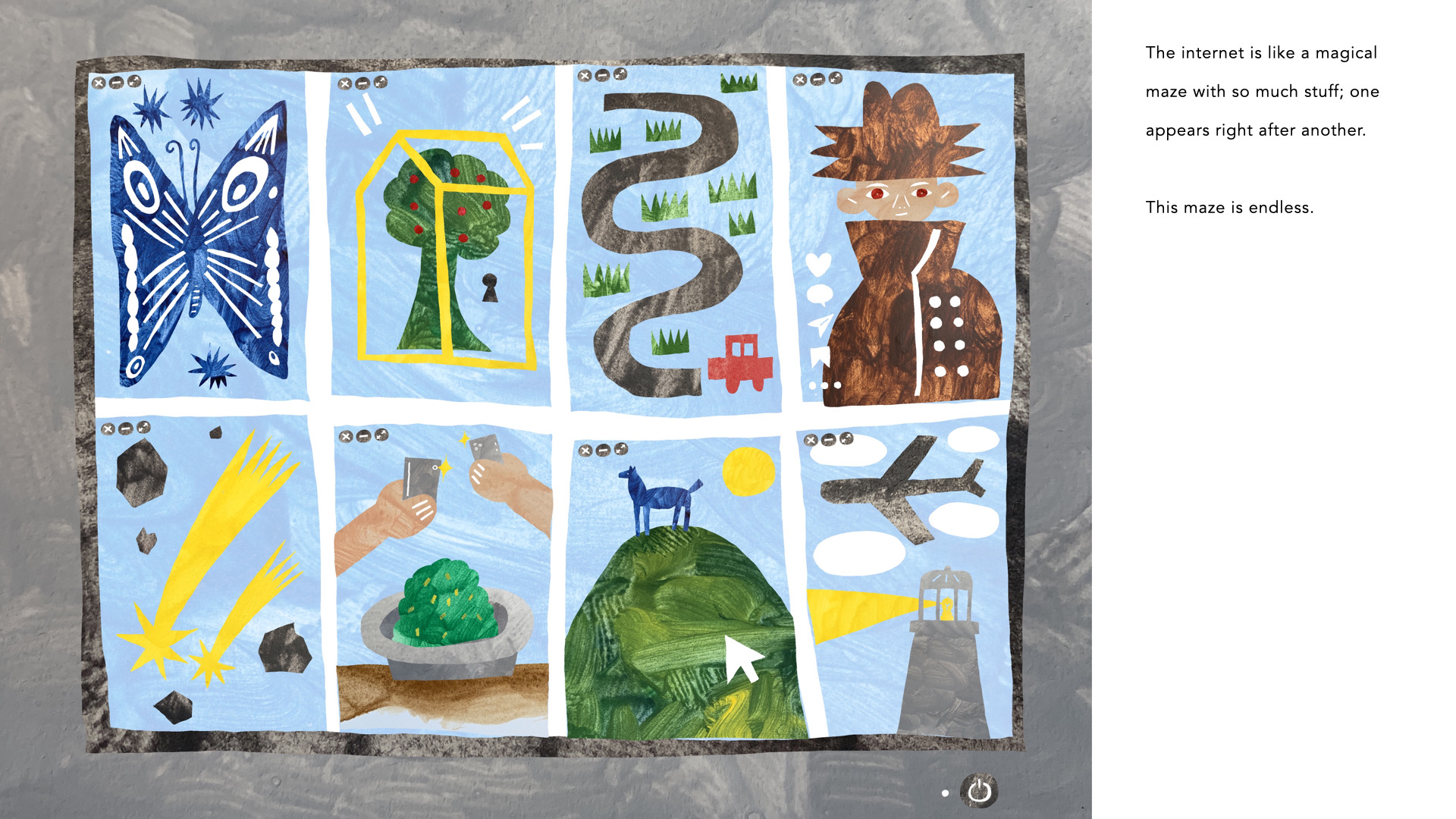
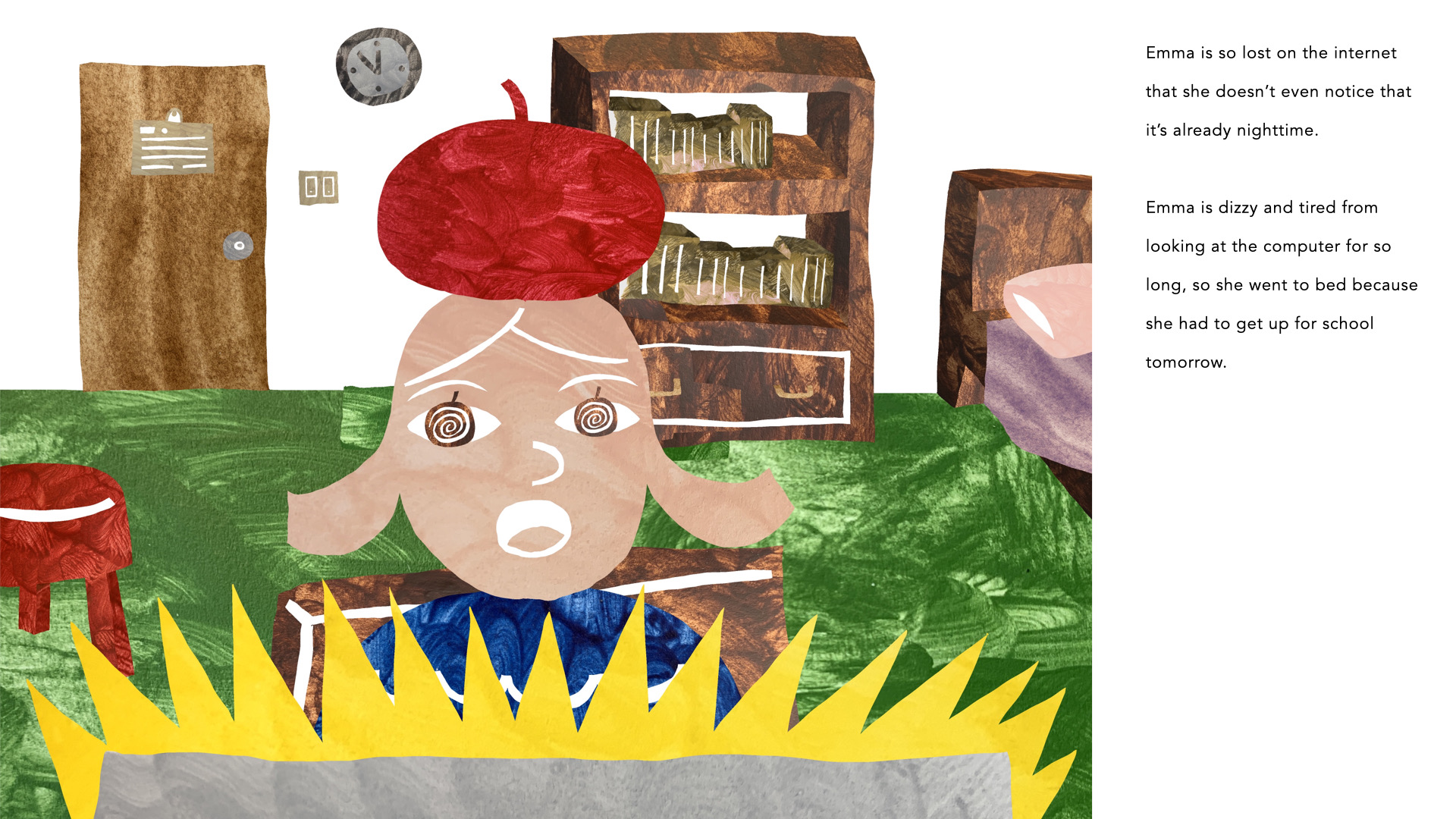
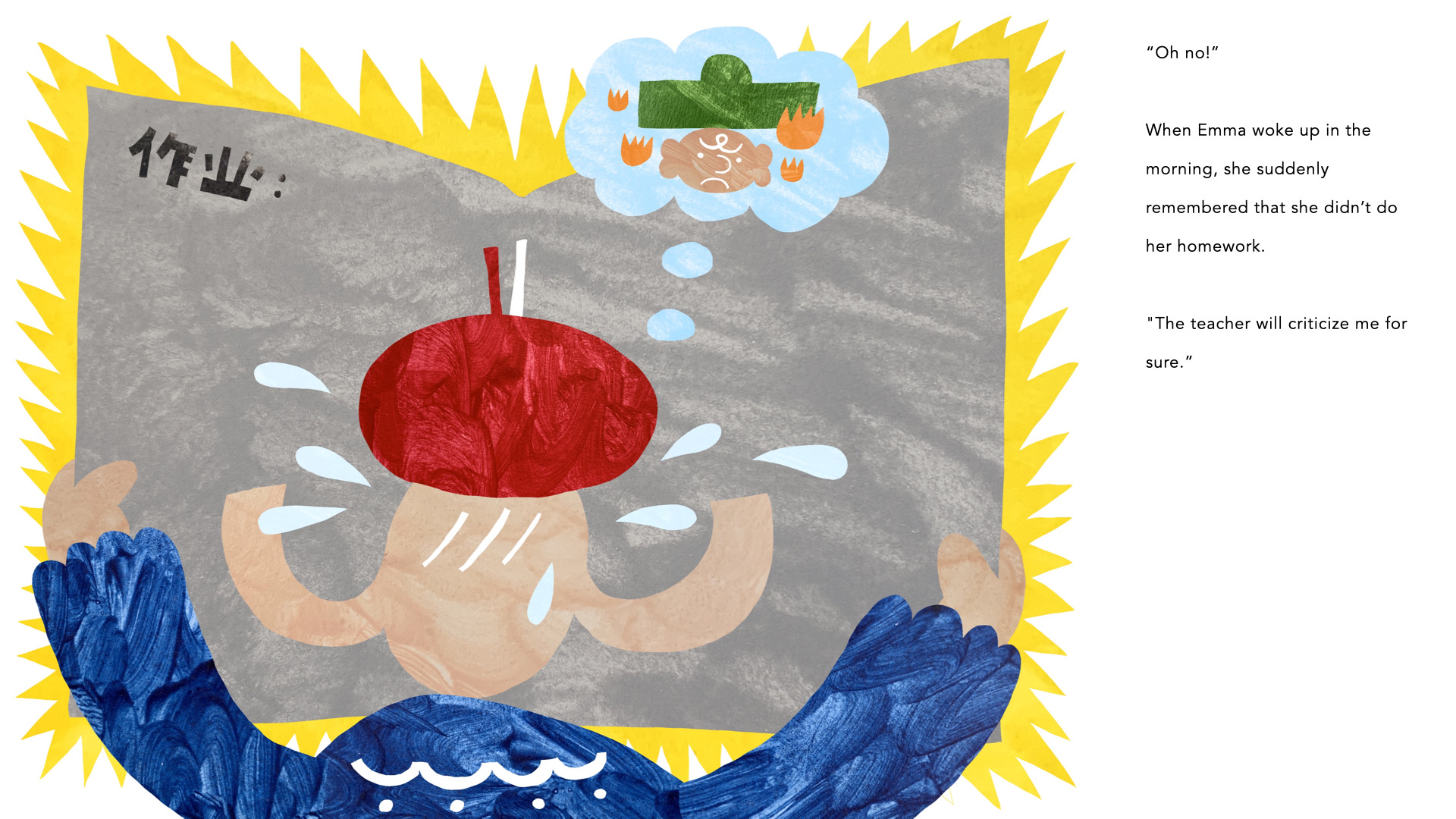
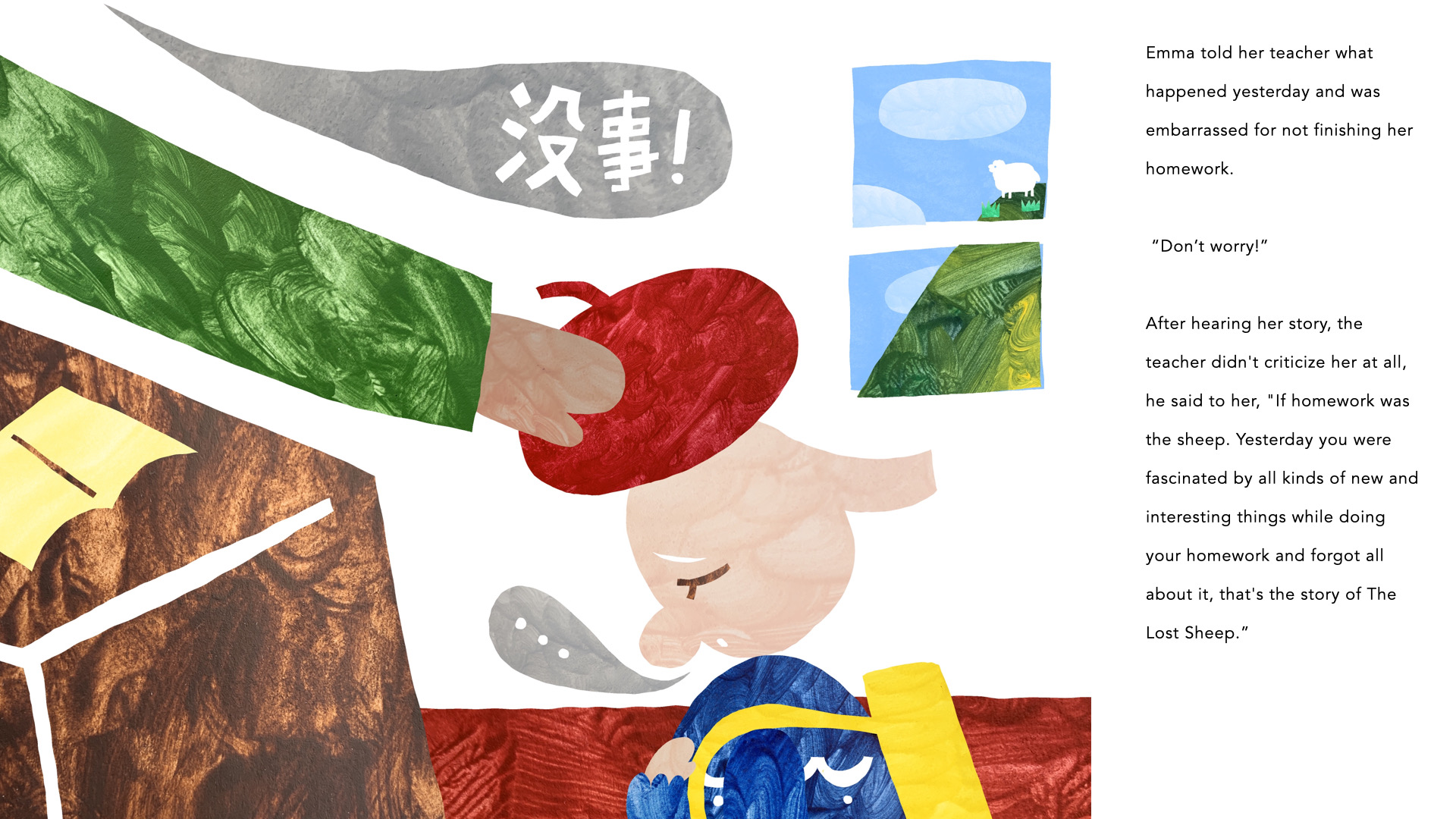
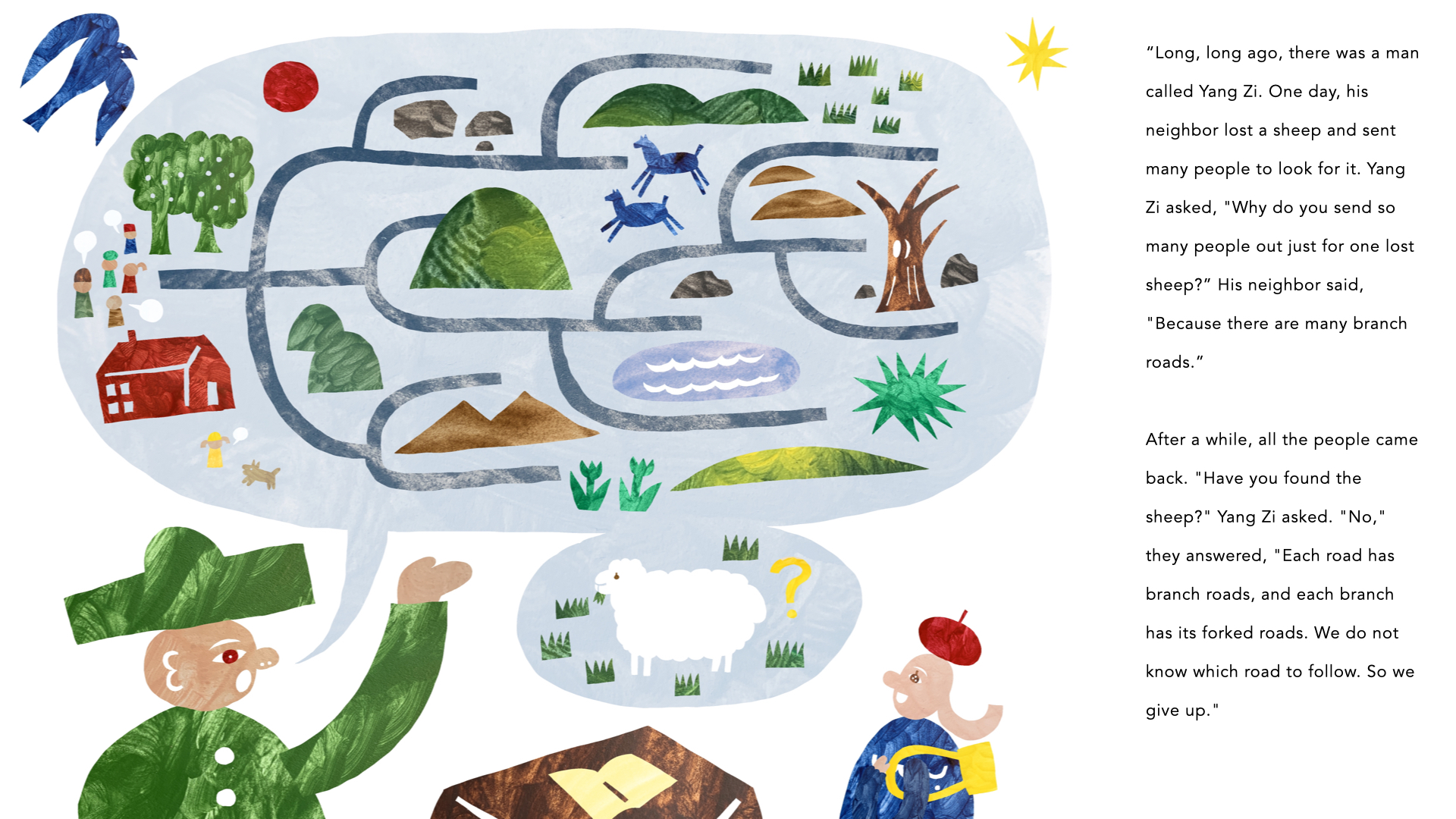
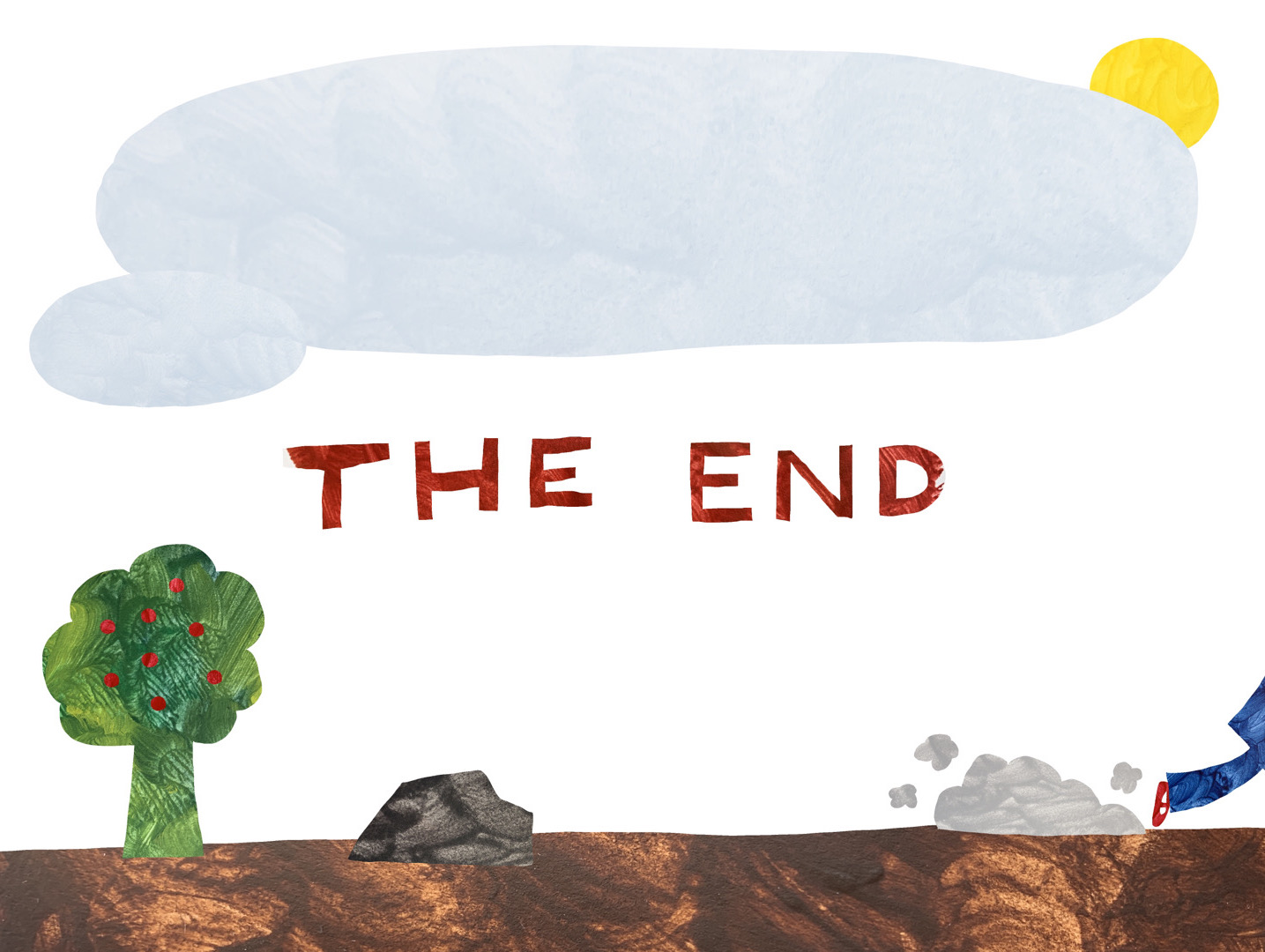
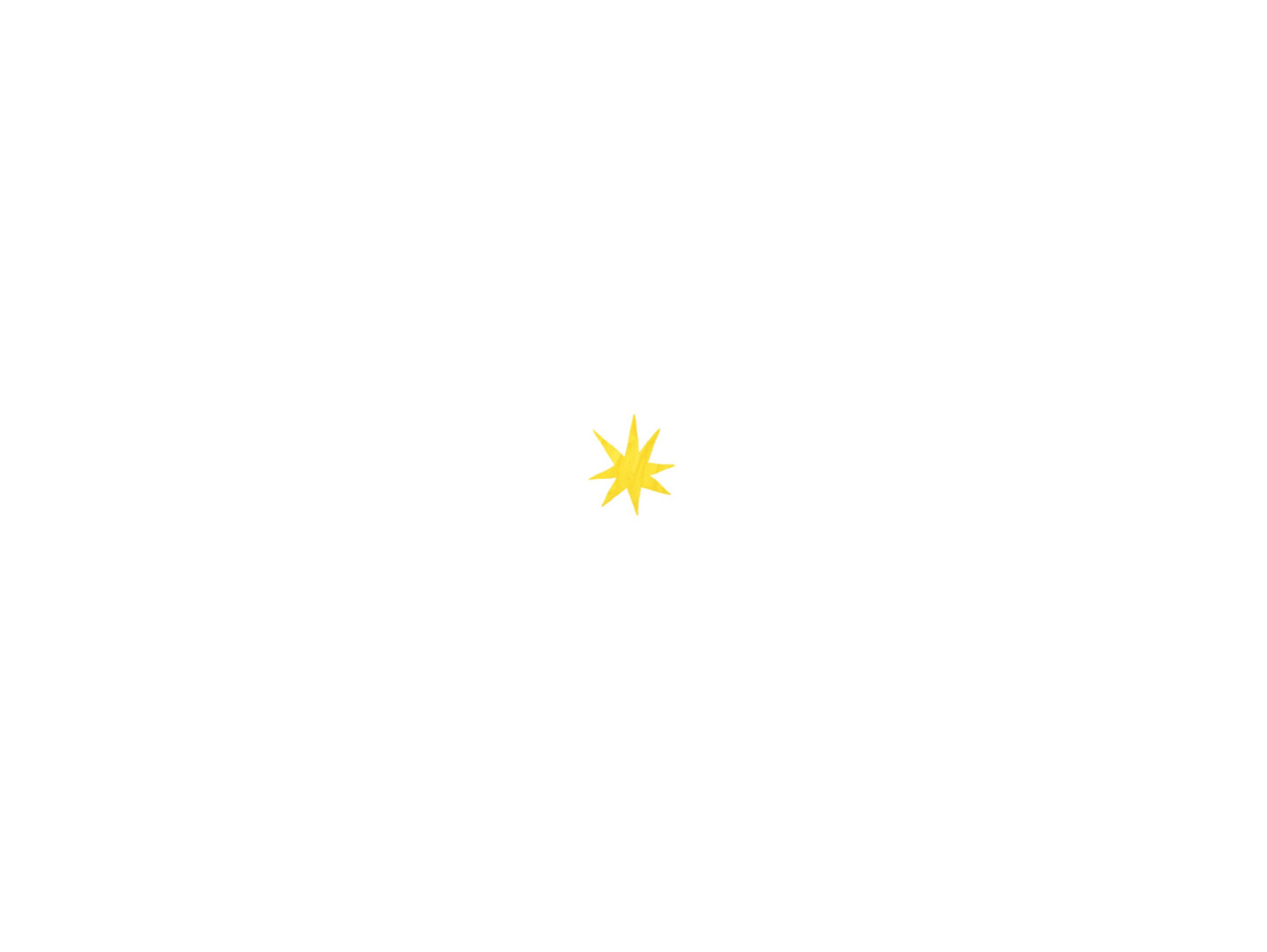
Welcome to the Machines, 2022, digital

A Precise Scientific Instrument, 2022, digital

Warrior and Her Pals, 2022, digital

POWER, 2022, digital
Illustration of a scene in the book The Cloven Viscount by Italo Calvino
———————————————————————————————
War, 2021, Graphite on paper
———————————————————————————————
“塞翁失马,焉知非福。”
“Misfortune may be an actual blessing.”
近塞上之人有善术者。马无故亡而入胡。人皆吊之,其父曰:“此何遽不为福乎?”
Near China's northern borders lived an old man well-versed in the practices of Taoism. His horse, for no reason at all, got into the territory of the northern tribes. Everyone commiserated with him. "Perhaps this will soon turn out to be a blessing," said the old man.
居数月,其马将胡骏马而归。人皆贺之,其父曰:“此何遽不能为祸乎?”
After a few months, his animal returned, leading a fine horse from the north. Everyone congratulated him. "Perhaps this will soon turn out to be a cause of misfortune." said the old man.
家富良马,其子好骑,堕而折其髀。
Since he was well-off and kept good horses, his son became fond of riding and eventually fell off the horse and broke his thigh bone.
人皆吊之,其父曰:“此何遽不为福乎?”
Everyone commiserated with him. "Perhaps this will soon turn out to be a blessing," said the old man.
居一年,胡人大入塞,丁壮者引弦而战,近塞之人,死者十九,此独以跛之故,父子相保。
One year later, the northern tribes invaded the border regions. All non-disabled young men took up arms and fought against the invaders, and as a result, nine out of ten men died around the border. The old man's son did not join the war because he was crippled, and they both survived.
故福之为祸,祸之为福,化不可极,深不可测也。
Blessing into misfortune, and misfortune into a blessing, its pattern is unfathomable.